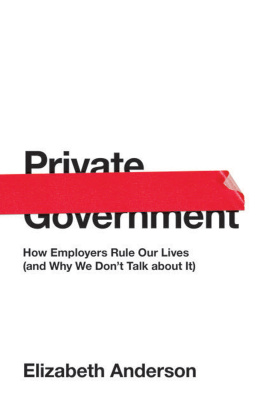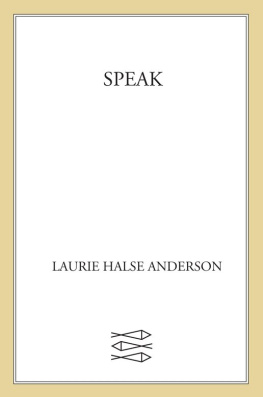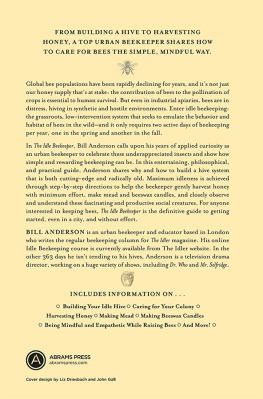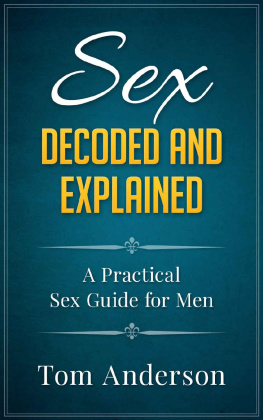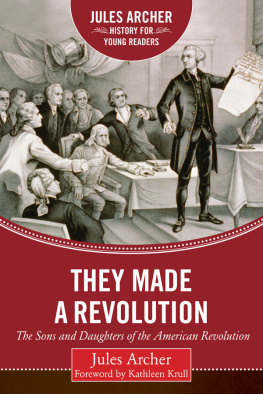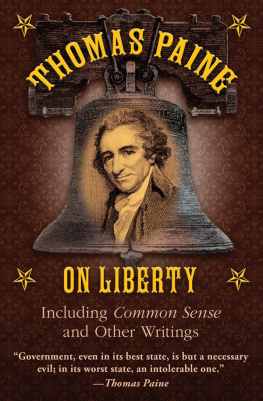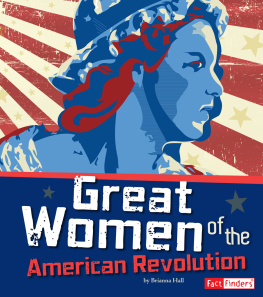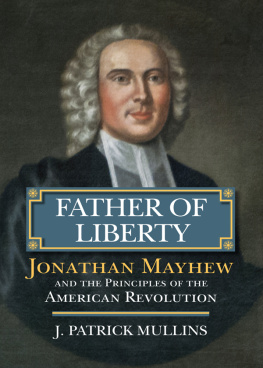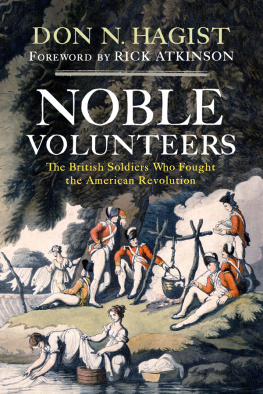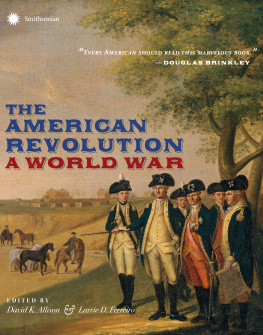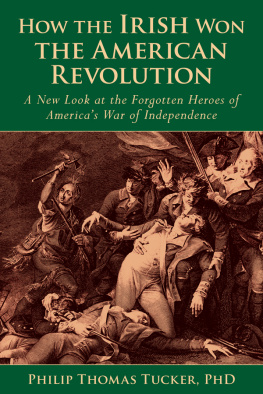BIOGRAPHIES of the AMERICAN REVOLUTION
BENJAMIN FRANKLIN, JOHN ADAMS, JOHN PAUL JONES, AND MORE
IMPACT ON AMERICA: COLLECTIVE BIOGRAPHIES
BIOGRAPHIES of the AMERICAN REVOLUTION
BENJAMIN FRANKLIN, JOHN ADAMS, JOHN PAUL JONES, AND MORE
Edited by Michael Anderson

Published in 2013 by Britannica Educational Publishing
(a trademark of Encyclopdia Britannica, Inc.)
in association with Rosen Educational Services, LLC
29 East 21st Street, New York, NY 10010.
Copyright 2013 Encyclopdia Britannica, Inc. Britannica, Encyclopdia Britannica, and the
Thistle logo are registered trademarks of Encyclopdia Britannica, Inc. All rights reserved.
Rosen Educational Services materials copyright 2013 Rosen Educational Services, LLC.
All rights reserved.
Distributed exclusively by Rosen Educational Services.
For a listing of additional Britannica Educational Publishing titles, call toll free (800) 237-9932.
First Edition
Britannica Educational Publishing
J.E. Luebering: Director, Core Reference Group, Encyclopdia Britannica
Adam Augustyn: Assistant Manager, Encyclopdia Britannica
Anthony L. Green: Editor, Comptons by Britannica
Michael Anderson: Senior Editor, Comptons by Britannica
Andrea R. Field: Senior Editor, Comptons by Britannica
Sherman Hollar: Associate Editor, Comptons by Britannica
Marilyn L. Barton: Senior Coordinator, Production Control
Steven Bosco: Director, Editorial Technologies
Lisa S. Braucher: Senior Producer and Data Editor
Yvette Charboneau: Senior Copy Editor
Kathy Nakamura: Manager, Media Acquisition
Rosen Educational Services
Shalini Saxena: Editor
Nelson S: Art Director
Cindy Reiman: Photography Manager
Karen Huang: Photo Researcher
Brian Garvey: Designer, Cover Design
Introduction by Shalini Saxena
Library of Congress Cataloging-in-Publication Data
Biographies of the American Revolution: Benjamin Franklin, John Adams, John Paul Jones,
and more/edited by Michael Anderson.1st ed.
p. cm.(Impact on Americacollective biographies)
In association with Britannica Educational Publishing, Rosen Educational Services.
Includes bibliographical references and index.
ISBN 978-1-61530-719-7 (eBook)
1. United StatesHistoryRevolution, 17751783BiographyJuvenile literature.
2. United StatesBiographyJuvenile literature. I. Anderson, Michael, 1972
E206.B56 2011
973.3092'2dc23
[B]
2011046358
Cover, p. 3 Comstock/Thinkstock; cover, p. 3 (inset) www.istockphoto.com/Joe Cicak (Benjamin Franklin), Stock Montage/Archive Photos/Getty Images (John Paul Jones); back cover www.istockphoto.com/Sodafish bvba; interior background www.istockphoto.com/oliopi (geometric), www.istockphoto.com/Bill Noll (floral)
CONTENTS

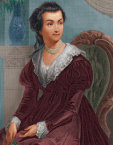
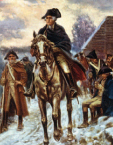

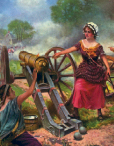
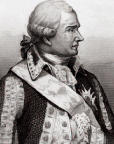
INTRODUCTION
T he path to freedomfreedom from tyranny, oppression, or injusticeis rarely straightforward and is often riddled with obstacles. Individuals around the world and throughout the centuries have fought bravely for liberty and for what they believe to be justly theirs, many never living to see the fruits of their labors. The story of the independent American nation begins with a number of such men and womenincluding future presidents, international freedom fighters, and ordinary Americans from all walks of lifewhose lives and contributions to the American Revolution are chronicled in this volume.
The seeds of the American Revolution had been planted around the time of the French and Indian War, several years before the Revolution broke out in 1775. The British, who then governed the colonies that would one day become the United States, had unjustly begun to tax the colonists and interfere with their trade and industry in order to help pay for the earlier war. Colonists increasingly began refusing to comply with such unfair tax practices as the Stamp Act and pushed more and more for full independence from Britain.

The Tomb of the Unknown Soldier in Washington Square in Philadelphia, Pa., honors George Washington and the many unknown soldiers who gave their lives during the American Revolution and helped make possible the colonial victory against the British. mary981/Shutterstock.com
Some of the most prominent voices of the Revolution belong to widely recognized names, including Benjamin Franklin, John Adams, Thomas Jefferson, and George Washingtonbetter known, perhaps, as some of the nations Founding Fathers. All were active in the Continental Congress, which made important decisions regarding the colonies dealings with Britain and the direction of the country they hoped to form. Most of them also signed the Declaration of Independence and participated in the creation of the U.S. Constitution. From Franklins orations and publications discussing the importance of colonists rights to Washingtons role as commander-in-chief of the colonial army, each wholly dedicated himself to the independence movement.
When protests and attempts at diplomacy failed to win the colonies what they needed, the colonists turned to their military to confront British forces head-on. Washingtonwho secured numerous American victories, including the decisive victory at Yorktownand such generals as Horatio Gates and Nathanael Greenewho helped the colonies win pivotal battles at Saratoga and in the South, respectivelywere critical in turning the tide of war in the colonies favor. The military success of the colonies also depended on the efforts of militias and leaders such as the swamp fox, Francis Marion, whose skill in navigating the forests and swampy terrain around Charleston, S.C., led to the defeat of British troops in the area.
Colonists were not the only ones for whom independence was a rallying call. The cry for freedom echoed far and wide, drawing in some seemingly unexpected allies such as Thaddeus Kosciusko and Casimir Pulaski, both of whom fought for freedom in their native Poland before coming to the aid of colonial forces. The French fighters Lafayette and Rochambeau also responded to the cry by serving with Washington during the war.
Not to be forgotten are the many individuals who risked their lives away from the front lines. Crispus Attucks, presumed to be an escaped slave, was challenging the British presence in the colonies when he was shot and killed in the Boston Massacre. Women, though denied permission to fight, found other ways to assist in the Revolution. Lydia Barrington Darragh and Sybil Ludington, for example, were each able to warn colonial forces of impending British attacks, thus averting possible disaster.
Next page

